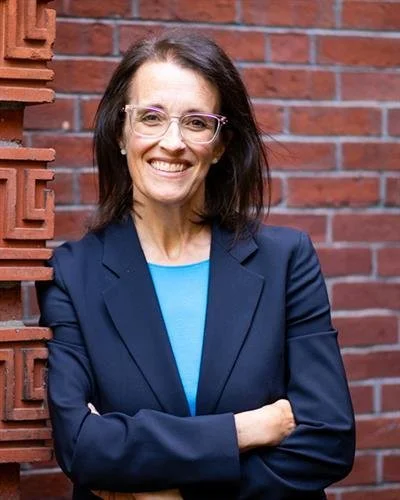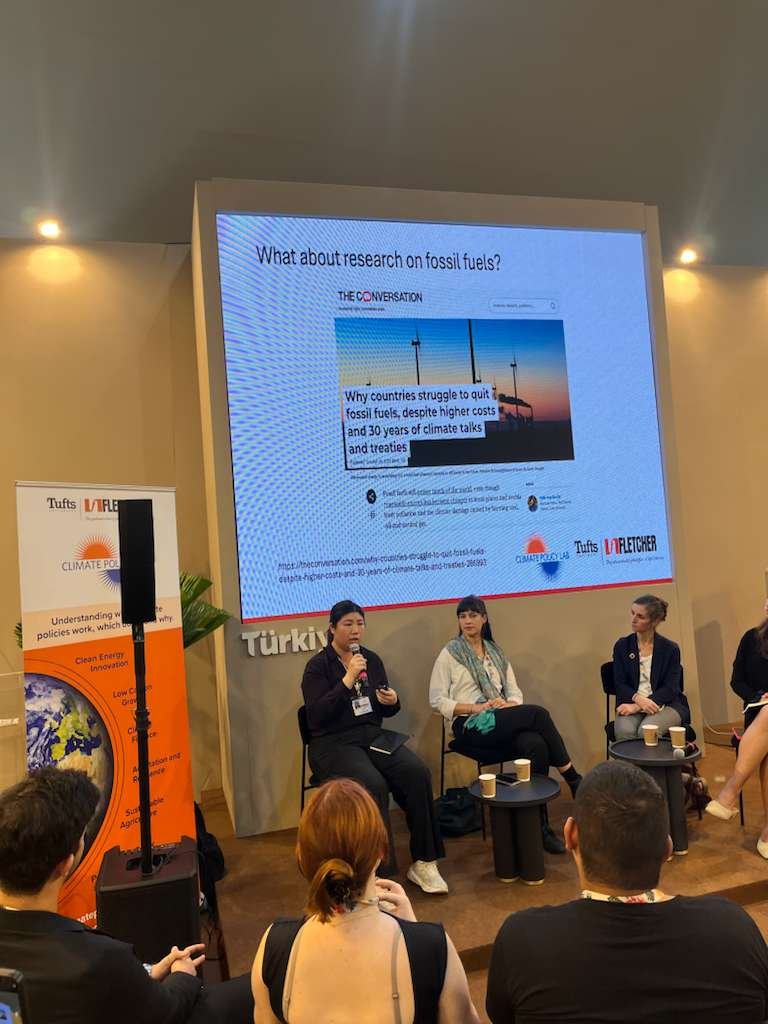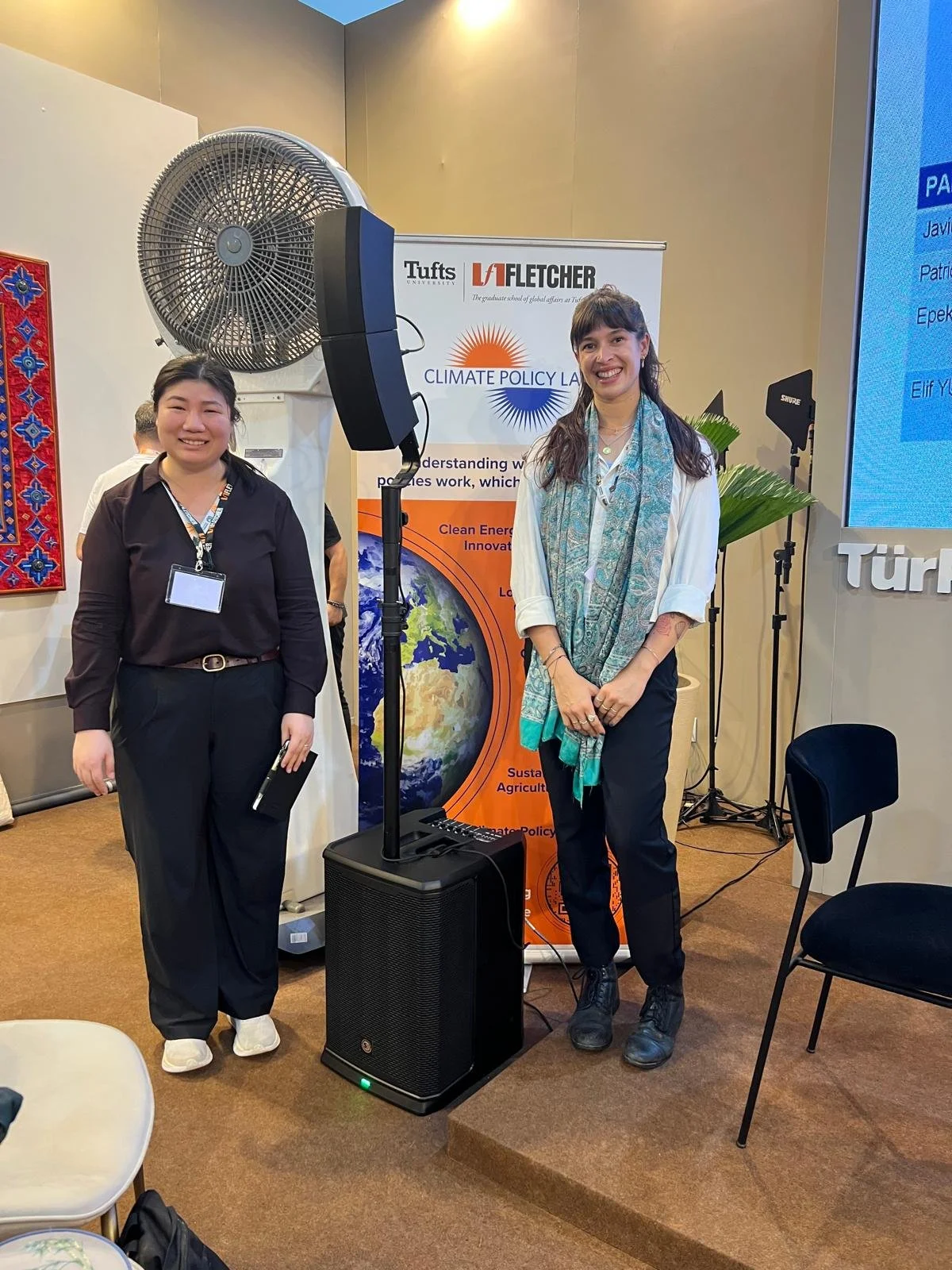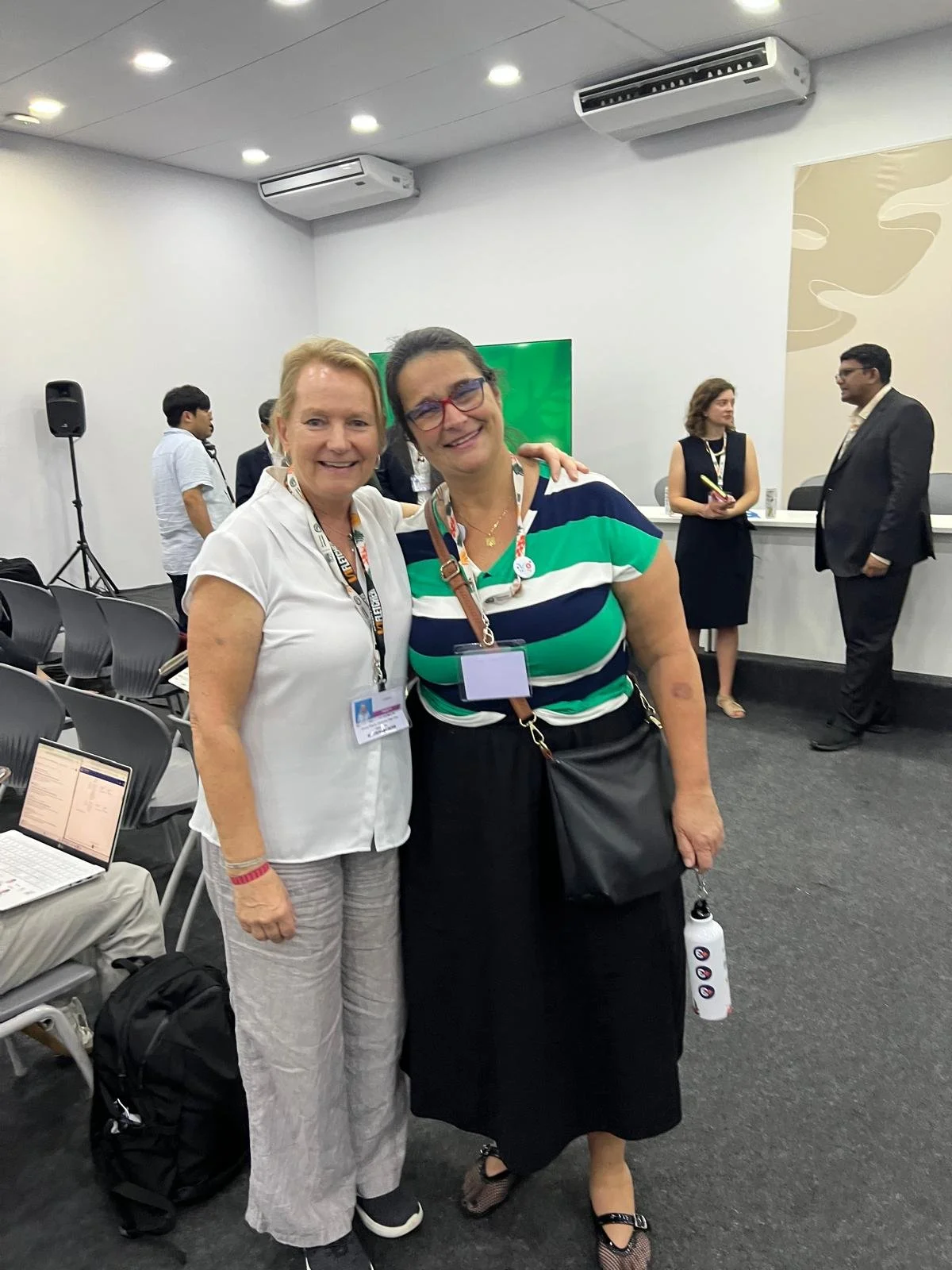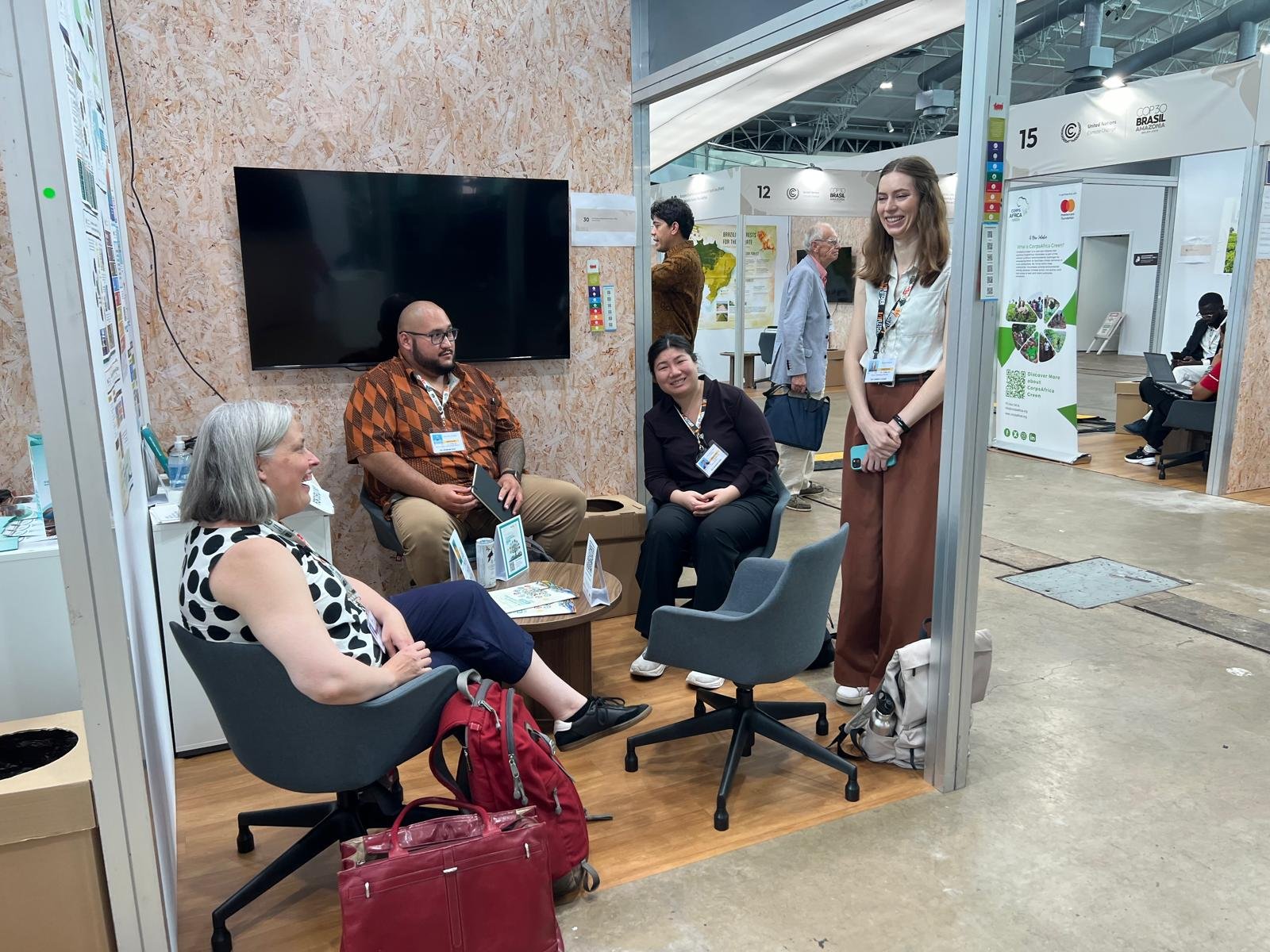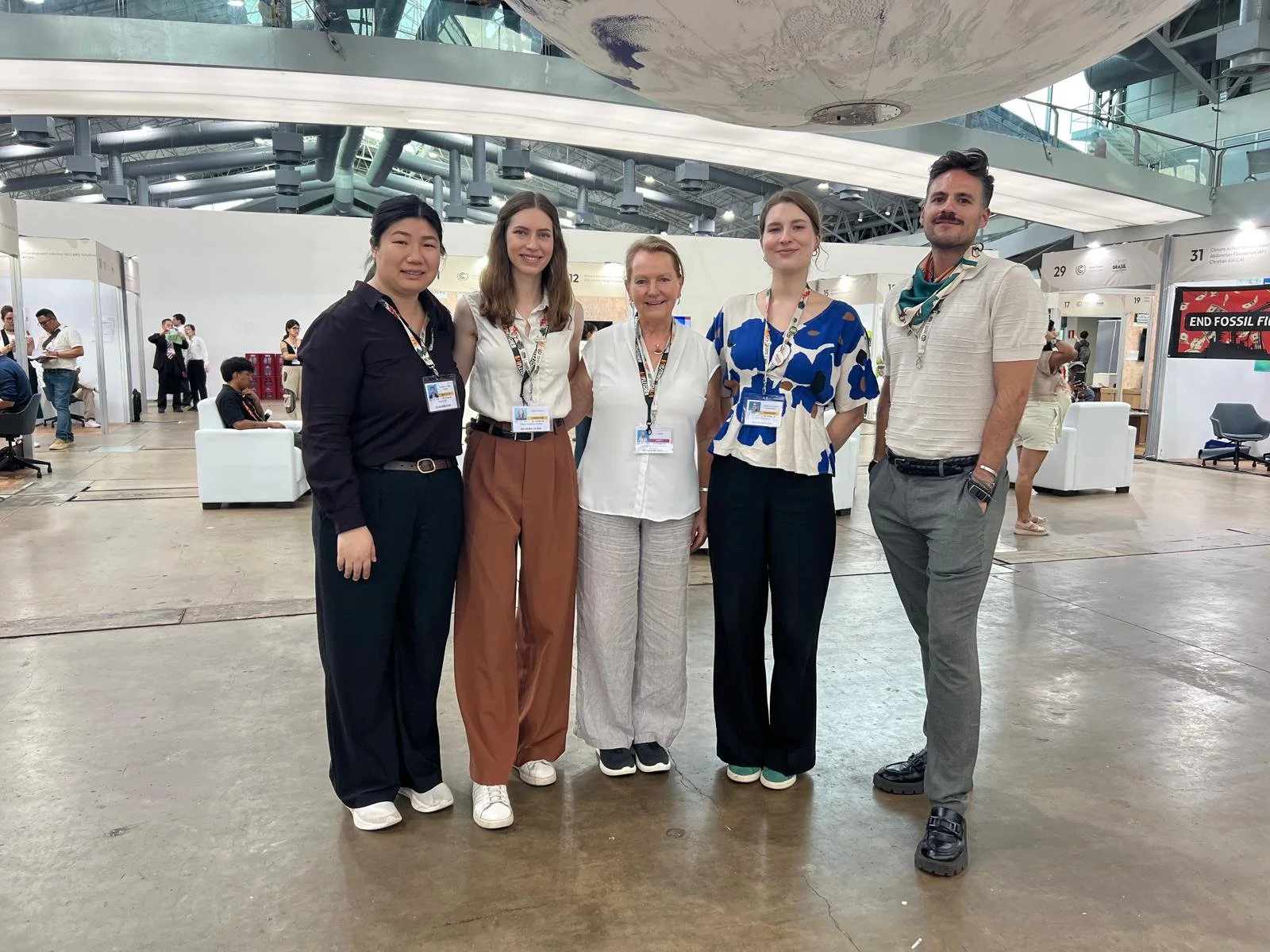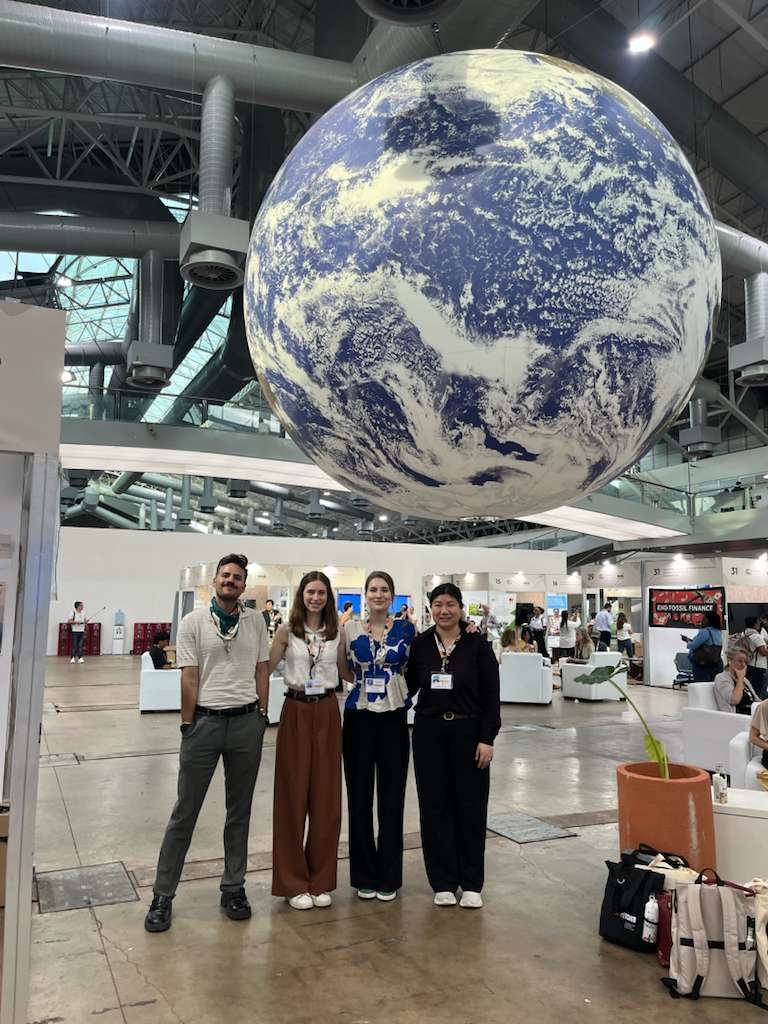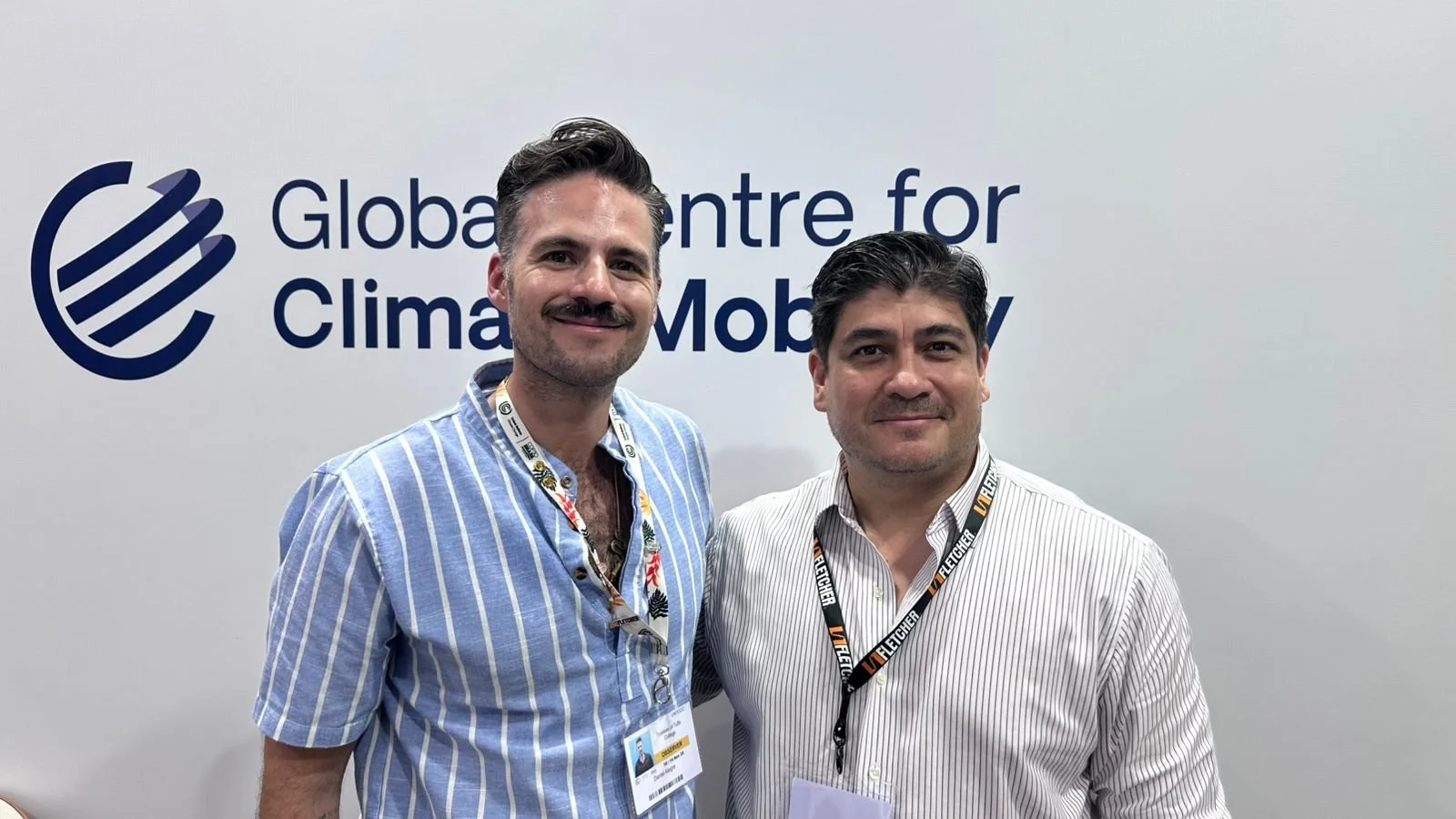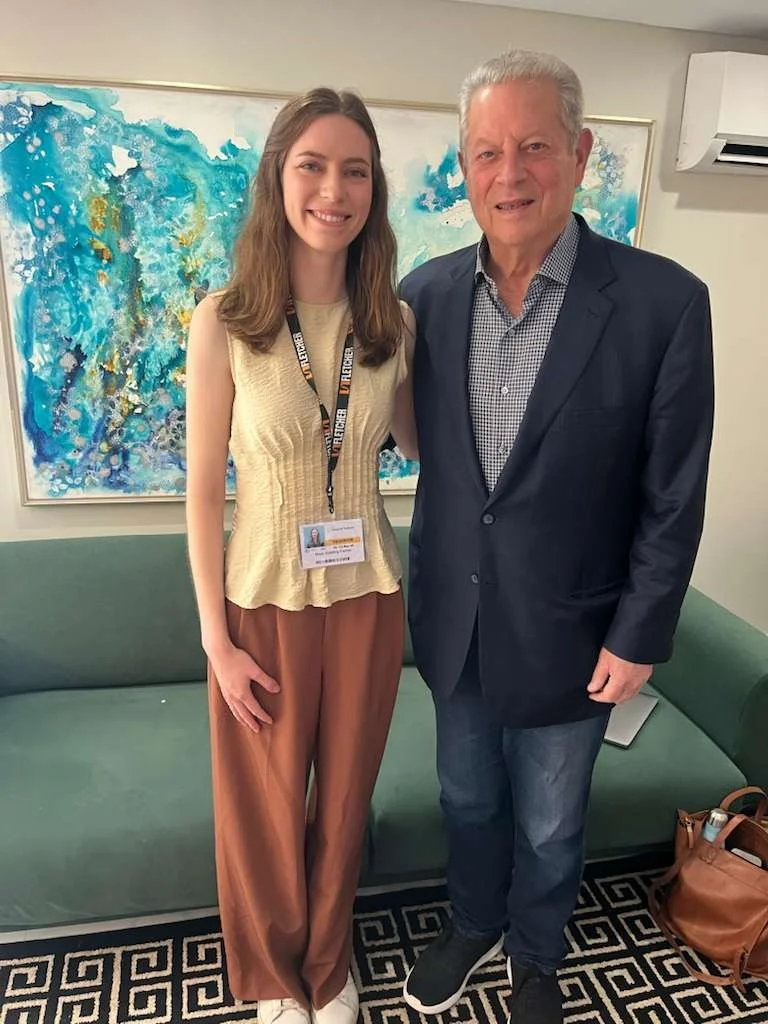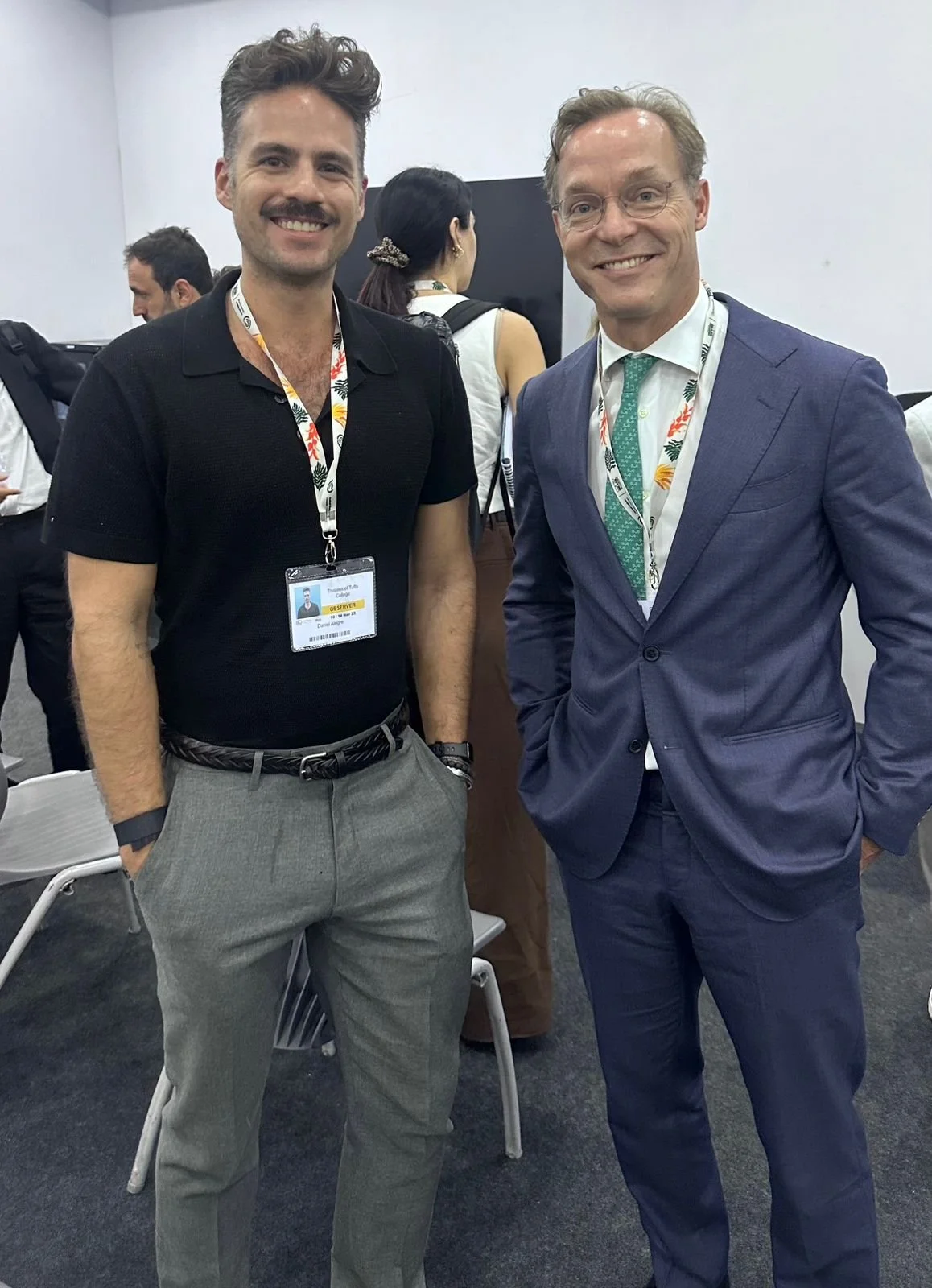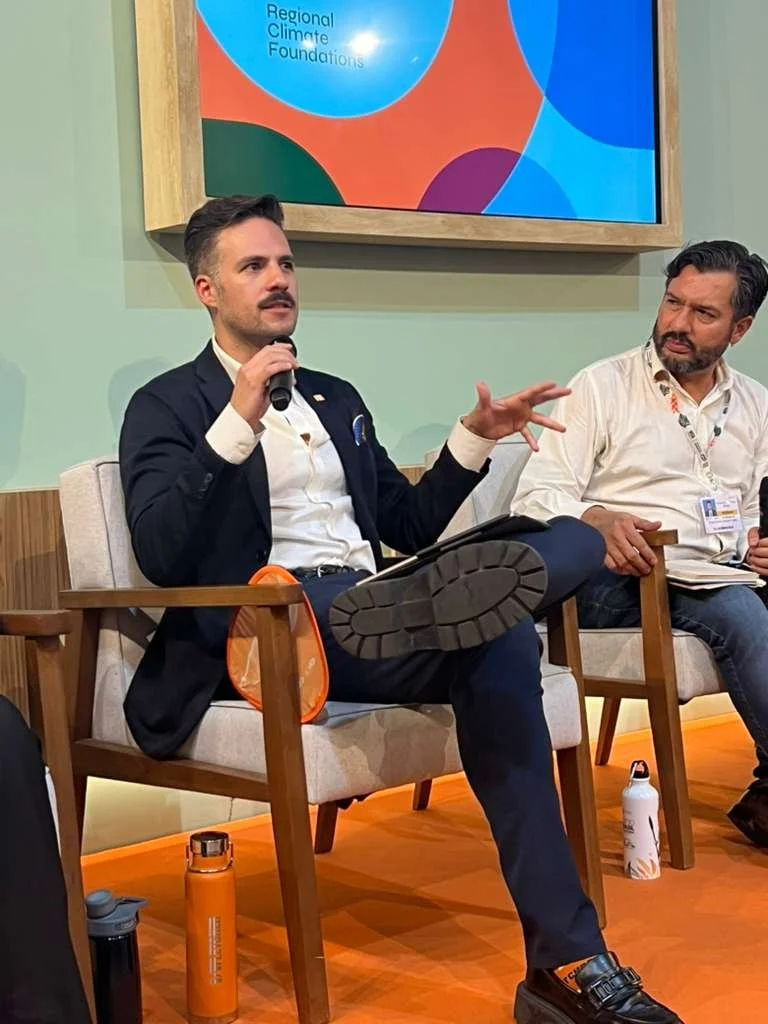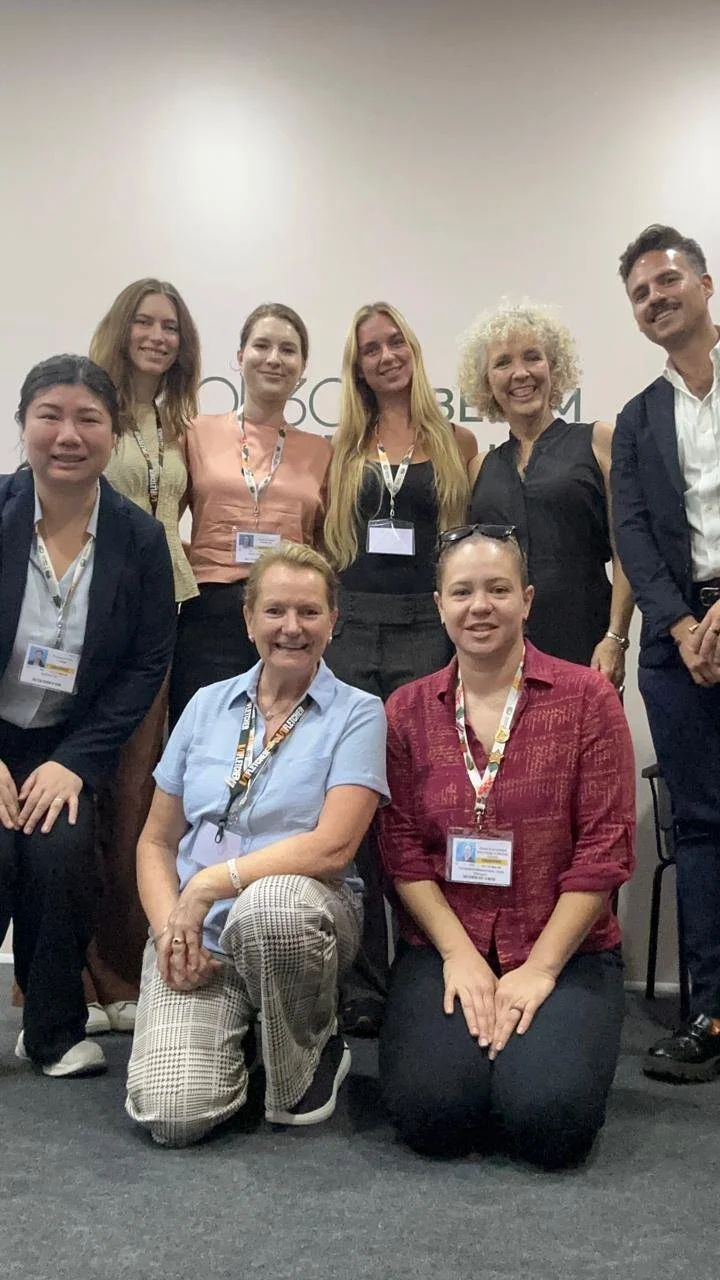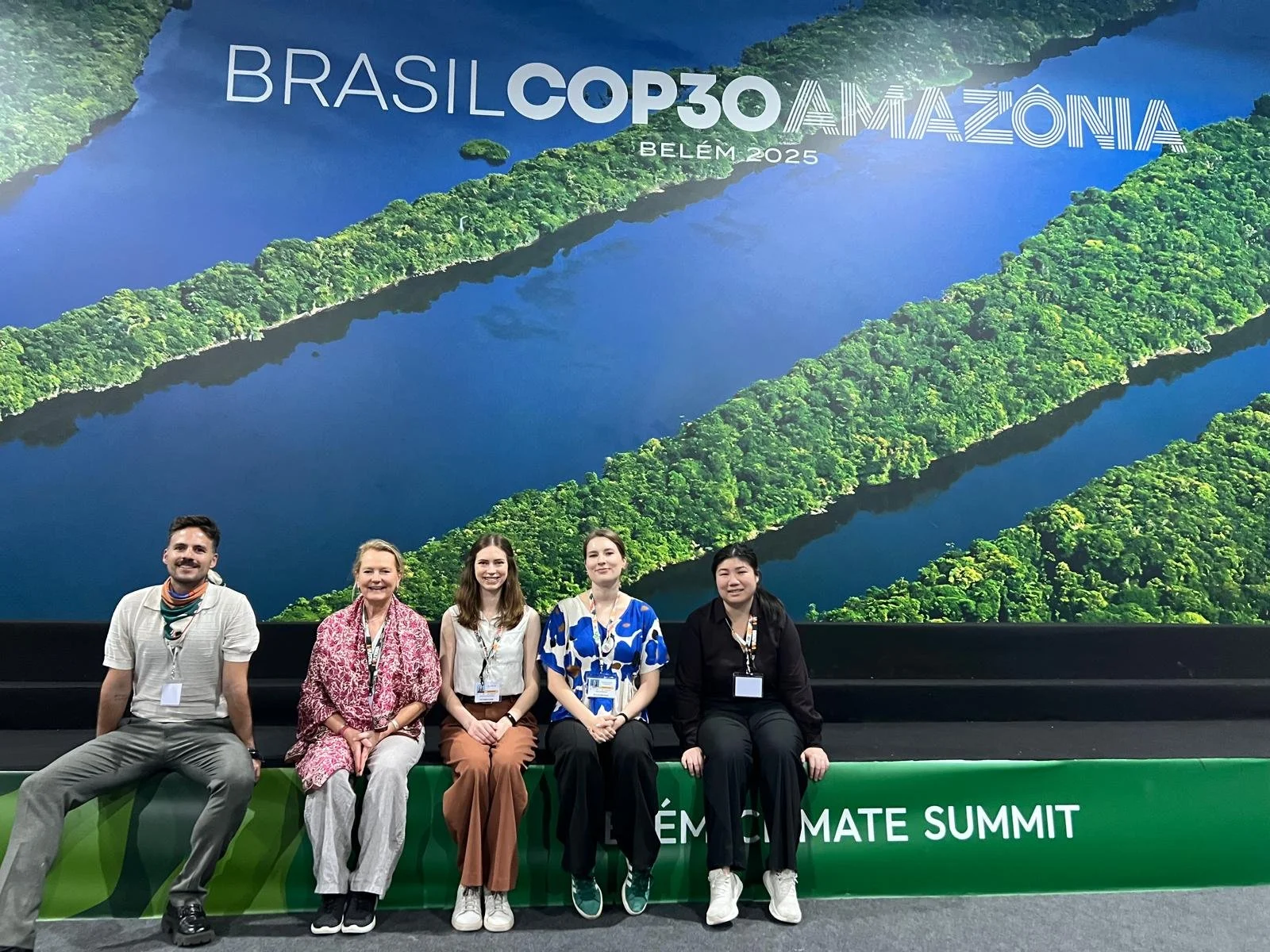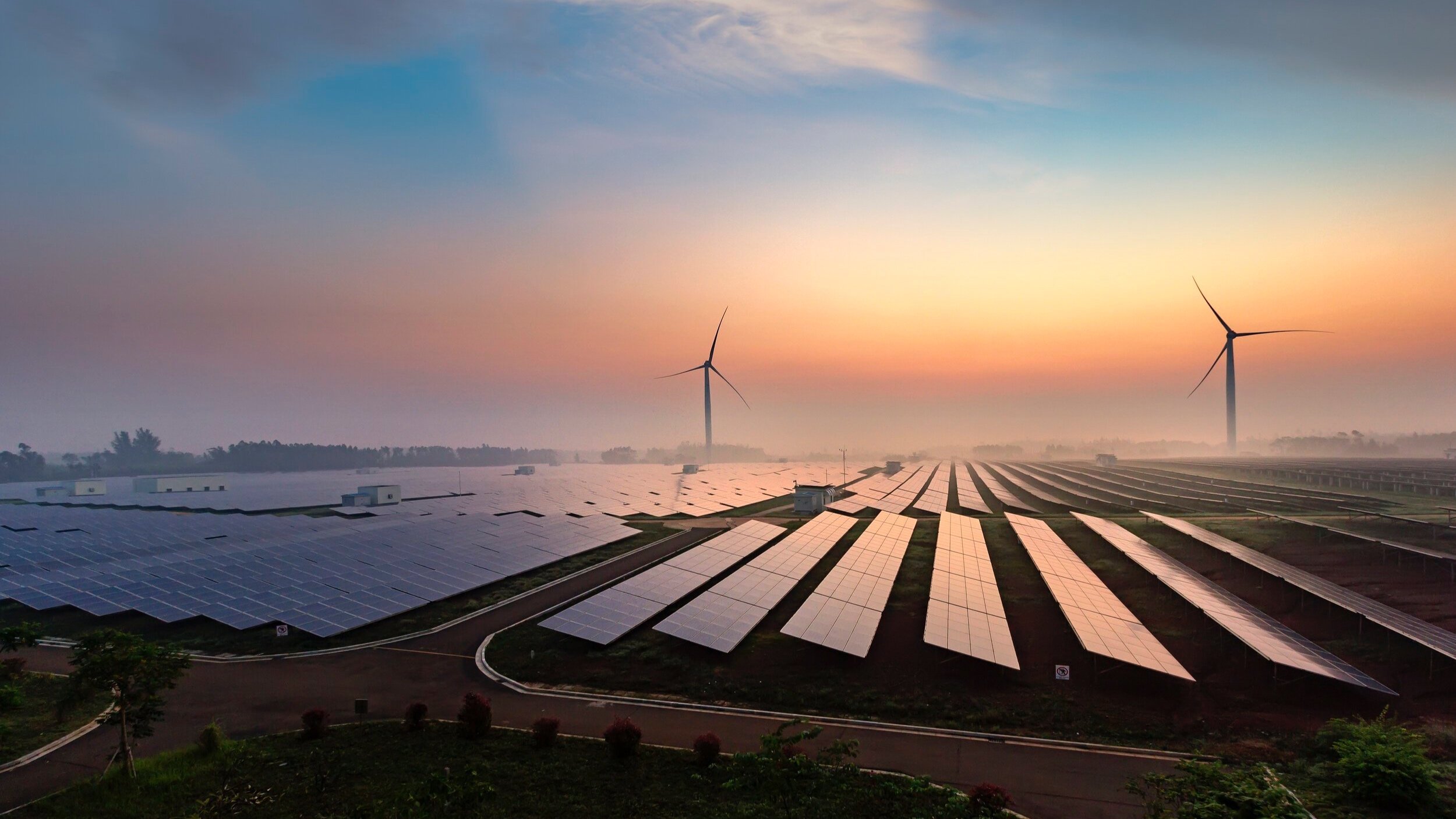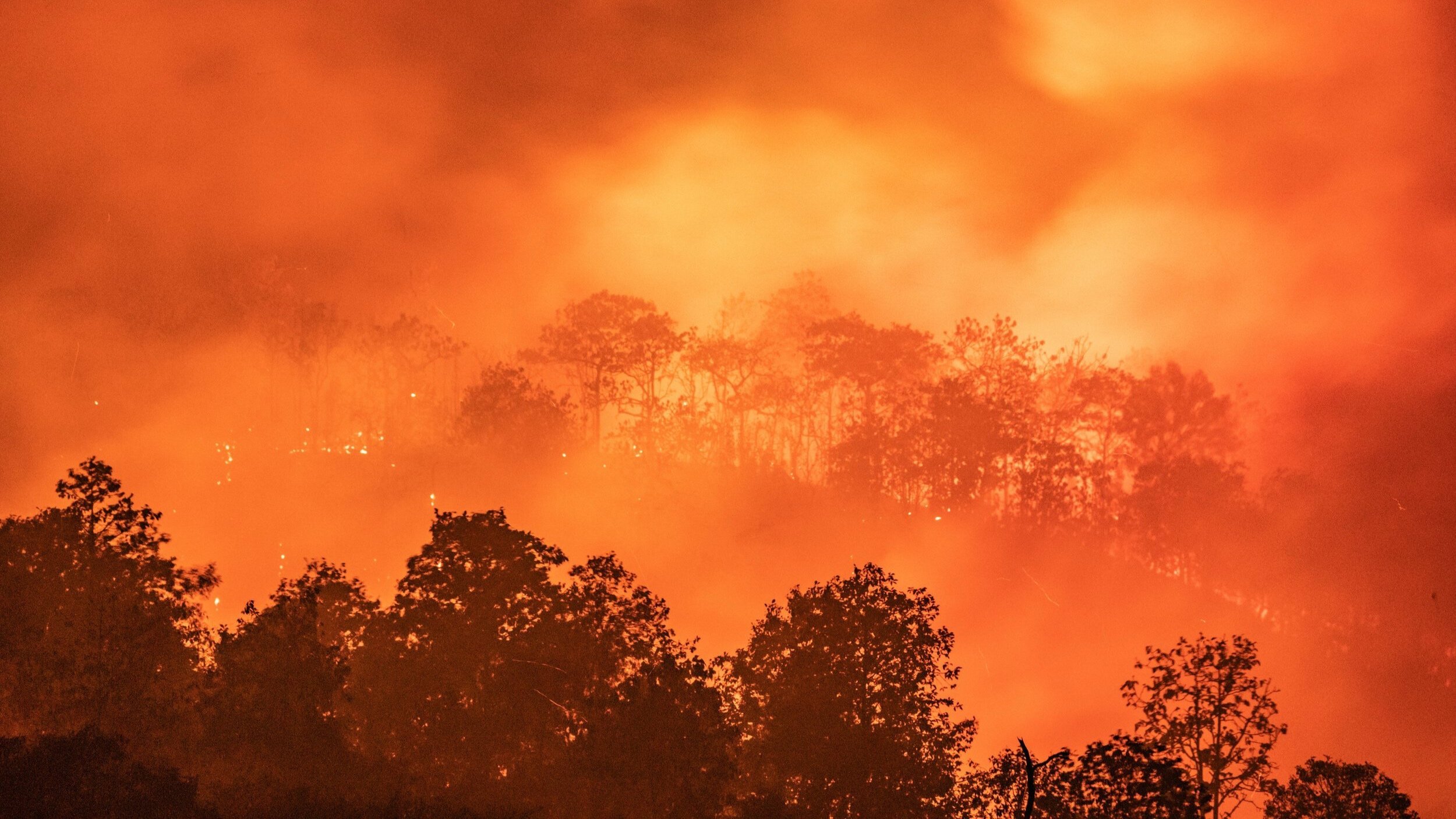Tufts University at COP30
What is the Climate Policy Lab?
The Fletcher School’s Climate Policy Lab (CPL) at Tufts University works to determine which climate policies work, which don’t, and why. The lab conducts independent, evidence-based research and policy analysis, providing objective insights that enhance effective climate-related choices for policy makers across the geographic and ideological spectrum. Our work is founded on the desire for sustainable and resilient development that will address climate change in a manner that will improve the quality of life for all people. The scope of the Lab is highly attuned to state, national, and bi-lateral policy processes while maintaining a global perspective – the motto of The Fletcher School.
Meet the Tufts University COP30 Delegation
We are collaborating with the University of Hawai’i delegation to enhance our delegations' experience at the COP. Please click the link to see their delegation information.
Climate Policy Lab Events at COP30
-
Topic: Advances In the Implementation of Climate Policy
Date: Tuesday, November 11
Time: 11:15am - 12:15pm BRT
Location: Regional Climate Foundations Pavilion
Description: The panel will bring together several country research teams to present and discuss findings from the ongoing implementation gap analysis on climate commitments. Panelists will share comparative insights on how national targets align—or diverge—from actual policy measures, highlighting lessons learned, challenges, and opportunities for enhanced action.
Speakers:
Agus Sari
Publications: Implementation Gap Analysis - Beyond Policy Adoption: Assessing Implementation Gaps in Climate Policies in Six Countries
-
Topic: From Baku to Belém: Ethiopia’s Progress on Climate Resilience and Green Growth
Date: Wednesday, November 12
Time: 1:30 - 13:00
Location: Ethiopia Pavilion
Description:
This side event, titled as “From Baku to Belem: Ethiopia’s Progress on Climate Resilience and Green Growth (Stocktake)” is co-organized by Ministry of Planning and Development of Ethiopia and the UNDP, and it will present the success stories, and challenges in Ethiopian context and outlining areas for collaboration with development partners for possible areas of international cooperation across prioritized sectors.
The side event will bring together high-level representatives from Government of Ethiopia, other countries, UN Agencies, international organizations, civil society organizations, and others.
Speakers
H.E. Dr. Fitsum Assefa, Minister of MoPD (Opening Remarks)
Representative of UNDP
H.E. Mr. Lars Aagaard, Minister of Climate, Energy and Utilities, Denmark (TBC)
Dr. Richard Muyungi, AGN Chair and Special Climate Envoy of Tanzania’s President
Gloria Namazzi, NDCP
Mr. Evans Njewa, LDC Chair
Kelly Sims Gallagher, Dean, The Fletcher School
-
Topic: Trade & Green Industrial Strategies: Interlinkages and Impact
Date: Thursday, November 13
Time: 2:30pm BRT
Location: Türkiye Pavilion
Description:
Dr. Ishana Ratan, Assistant Professor at University of Mississippi
Catherine Goldberg, Former Senior Climate Policy Advisor at the U.S. Department of State
Jennifer Baumwoll, Head of Climate Strategies at the UNDP
Kate Chi, Predoctoral Research Fellow, Climate Policy Lab
-
Topic: Demonstrating health and economic co-benefits of climate mitigation
Date: Monday, November 17
Time: 9am-10am BRT
Location: WHO Health Pavilion
Description:
Public health and economic gains are compelling motivators for policy action. We will present successful real-world energy, urban planning, and food policy interventions that have provided significant health, economic, and climate mitigation gains.
Speakers
Khristopher Nicholas, PhD
George Thurston
Vanessa kerry
Mary Rice
Agnes Soares da Silva
-
Date: November 17 - November 20
Location: Booth #42
Organizers: Tufts University and Cornell University
Description: Cornell University and Tufts University will present their world-renowned climate research (Cornell Atkinson Center) and policy analysis (Climate Policy Lab) to help advance dialogue and decisions with Parties and observers at the COP.
Thematic category: Education, Science and Technology: Just transition; Systems transformation; Energy
-
Topic: Education for Empowerment: Shaping the Next Generation of Climate Innovators
Date: Tuesday, November 18
Time: 9am-10am BRT
Location: SDG Pavilion
Description:
This moderated panel explores higher education’s essential role in fulfilling the Paris Agreement’s call for enhanced climate change education and public awareness. It will showcase how universities are leveraging their strengths in knowledge creation and transfer to address the climate crisis and create solutions. Faculty and student leaders from a diverse set of institutions will highlight innovative programming, applied educational experiences, and interdisciplinary initiatives across geographies and cultural contexts. Panelists will also discuss impacts these types of educational approaches have in fostering student agency and self-efficacy, building trust with community stakeholders, and accelerating the transition to a sustainable society.
Speakers
Abby Bergman, Boston College
Leah Poole, Tufts
Ellie Johnston, MIT Climate Pathways Project
Josh Cohen, Tufts
Paola Visconti Arizpe, Tec de Monterrey
COP30 News
Our Delegates at COP30
Explore CPL’s Research Themes
CPL Implementation Gap Analyses
The Climate Policy Lab released six policy briefs examining the implementation gaps in major emerging economies — Brazil, China, India, Indonesia, Mexico, and South Africa. You can read the briefs here.
Read More About CPL’s Data Work
Accurate and transparent data is fundamental to climate and energy research at Climate Policy Lab (CPL) and beyond. Climate Policy Lab develops analytical tools and government-engagement programs to assist policy makers to estimate the emissions reductions or avoided emissions for specific policies or a range of complementary policies within the context of national political, societal, cultural, and technical landscapes. We believe that access to accurate and transparent data collection and analysis facilitates more ambitious climate action and improves the level of success in achieving urgent climate action goals.






